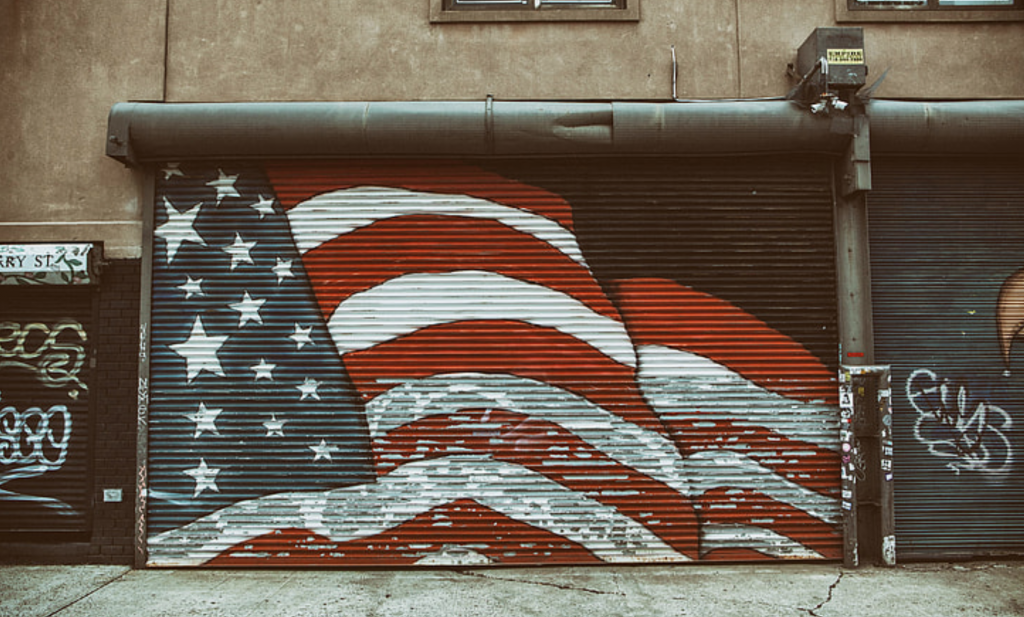

If liberalism as an ideology is flawed, as a governing framework it remains indispensable
My November 28 essay mapping contemporary Christian engagement in public life touched a nerve. Even apart from the backlash over how I illustrated the four quadrants, the essay generated vibrant discussion and debate in places far and near. Some found my framework closed-minded and self-serving, while others, after enumerating its flaws, declared it a useful starting point for conversation. Still others praised it as a welcome guide to a challenging moment in our history. All that to say, accounting for acknowledged regrets, I am pleased with the results. Having managed—to my own very genuine surprise!—to provoke fruitful, even heated conversations over ideas that matter has been very satisfying; it reaches commendably toward one of Current’s foundational goals of becoming an arena. So let’s keep playing!
I am grateful to those who engaged me online and over email. Despite painful reminders of how much Twitter now governs contemporary debate, nothing about this experience leads me to reconsider my decision to stay off the platform. I know that choice comes at a cost—ideas left unconsidered, voices unheard, and so on. But deciding to join Twitter would also be costly; in terms of my mental health, a little too costly. I’ll live with the consequences of what I am missing there.
I’m especially thankful for the writers who took time to read and reflect on my essay for this forum at Current. Their sincere, good faith critiques have prompted me to rethink many elements of my original proposal. Here I offer responses to only a few of their sharp insights, adding my own musings along the way.
Rondall Reynoso was the first person to receive the original draft of what became my essay for Current. As noted in his response, he offered public comments on my paper at this year’s Lee Symposium. I regret that I didn’t incorporate some of the valuable feedback I received from Reynoso and others at the symposium. It would have been a stronger essay had I done so.
Reynoso helpfully lays out several objections to what he and others consider my uncritical “acquiescence” to the liberal tradition, an instinct he presumes to arise more from my need to maintain a certain civil posture or disposition than from a more presumably faithful desire to fight for an actually just society. Quoting a provocative Adam Joyce essay, Reynoso suggests that Christians like me who aspire to frame our thinking as part of the “center” of American public life give misguided priority to “a sanctified process of politics over seeking liberation and justice.”
While I certainly disagree with Reynoso’s simplified portrayal of the liberal tradition, he is right to question my framework’s lack of explicit recognition of efforts at promoting social justice. In fact, I now understand how easily my essay could be read to say that all such pursuits are somehow illiberal. This is no small oversight on my part! Some of the greatest triumphs of liberalism in American history have emerged among those who had been categorically barred from its protections and benefits, the access to which they rightly fought to expand for everyone. My essay could have done a much better job of showing the many ways social justice activism has worked within the frame of the liberal tradition.
It wasn’t the pursuit of a mere “sanctified process of politics,” for instance, that motivated Martin Luther King, Jr. to come to Washington in August of 1963, declaring that America had defaulted on its promises to its Black citizens. “When the architects of our republic wrote the magnificent words of the Constitution and the declaration of Independence,” King insisted, “they were signing a promissory note to which every American was to fall heir. This note was a promise that all men would be guaranteed the inalienable rights of life, liberty, and the pursuit of happiness.” King’s fight for “liberation and justice” would come as a fulfillment of America’s liberal tradition, not as a series of efforts to achieve these abstract goals through some alternate pathway.
Until I read Amy Black’s response to my essay I was not aware of her own thoughtful contribution to this conversation. This fact not only illustrates one the many blind spots operative in my essay, but it also highlights the dangers of making bold claims outside of one’s own disciplinary boundaries. As they say, “Fools rush in where angels dare to tread.” All the more reason to be grateful for Black’s serious but charitable evaluation of my essay. I now have her book on order.
As indicated in my essay, my use of an x-y graphing schema to chart this problem extended to my proposal an undeserved sheen of scientific precision. It is appropriate that it should receive a proper vetting by someone actually trained to do this kind of thing. Black’s gentle treatment of both of my axes helps to clarify the limits of casting these problems in the ways I did. I welcome her nuanced analysis of what I aspired to do in framing extremes on both axes and her keen-eyed look at some of the areas such framing runs into trouble—particularly its creation of presumed “heroes” and “villains.” But I especially appreciate her helpful observation that a “chart like this only gains dynamism when used as a scatterplot that displays a wide array of options” (emphasis added). While I tried to convey this insight early in my essay, the broader arguments in the piece left an impression of “ideal types” that, as Black observes, “ends up focusing narrowly on four options.”
Christopher Shannon raises questions of my defense of the liberal tradition that I find especially formidable and difficult to resolve. Like Reynoso, he wonders if I have idealized the promise of the “free market,” while ignoring the many ways its defenders used a romanticized vision of “consent” and “rational choice” to ravage local communities, to say nothing of the earth, all in the name of “freedom.” While there are plenty of reasons to question whether much of what we usually describe as “industrial capitalism” in America ever operated under anything like a “free market,” the larger questions of its abject failures are plain to see and impossible to defend. Liberalism is indeed different in the practical outworking of history than it is in theory.
Furthermore, Shannon raises the even stickier challenge brought to the liberal tradition in the unyielding logic of the sexual revolution. In short, as the liberation of sexual expression and gender identity reaches new heights, does liberalism offer meaningful spaces for “good Americans” to question or dissent from its most radical expressions? Or as he puts it: “Are liberal values,” in fact, “liberal?” Shannon may be right that, at its core, despite elevated claims to freedom of conscience and expression, defenders of liberalism always presume some kind of unconscious, underlying dogma to which members the American tradition, in good standing, must give heartfelt assent. But recognizing and exposing such inconsistent and authoritarian patterns in the culture of our politics has long supplied the seed of renewal and reform in American public life. I believe it can yet.
My thinking since the election of 2016 has been shaped by writers like Mark Lilla, Meghan Daum, Jonathan Haidt, and John McWhorter. Despite their own personal, left-leaning politics, each of these writers understands the need to uphold and defend the foundations of liberalism against extremists on both sides if the promise of a common good is ever to be realized in a deeply divided, pluralistic society. These sentiments, along with those found in affirmations like the Harper’s Letter and the University of Chicago’s Statement on Faculty, Free Expression, and Diversity, serve as a backdrop to my essay.
As I observed in my essay, very few people in contemporary public life think of themselves as having already abandoned the liberal project. But the pull of negative polarization and the growing alarm at what “the other side” has done (or will do) when put in charge of “setting the rules” pushes all of us, regardless of our political predilections, toward diminishing confidence in its ideals and institutions. While I am not suggesting that liberalism should be regarded as a panacea that will usher in an age of peace and harmony for Americans of all kinds, I do believe it remains the least bad—and thus the necessary—framework by which to govern ourselves and manage our differences.
Jay Green is Professor of History at Covenant College. His books include Christian Historiography: Five Rival Versions and Confessing History: Explorations of Christian Faith and the Historian’s Vocation (edited with John Fea and Eric Miller). He is Managing Editor of Current.
Jay,
Thank you for stating this important discussion and making sure it came to life on Current. I think we all agree that the standard left-right binary is problematic. The question though is how do we move forward in a meaningful way? That is where the disagreement lies.
I do want to correct one thing and ask another question.
The correction
You wrote that in my critique I presume your “uncritical ‘acquiescence’ to the liberal tradition… arise[s] more from [your] need to maintain a certain civil posture or disposition than from a more presumably faithful desire to fight for an actually just society.” First, I do not think you are uncritical of liberalism at all. Second, I do not presume that the position you took is because you have a greater commitment to a civil posture than to a just society. I actually think the opposite of both of those points.
I used the Adam Joyce quote because it is deliciously dramatic and because it highlights a major counterpoint to your position. I do think that Joyce is correct in saying that for moderates there is a tendency to “acquiescence to the oppressive status quo”. King’s letter from a Birmingham Jail certainly underscores this issue. I did not mean to say that this is true of you specifically but that it is a danger for the Minimalists as defined in your scheme. Further, there seemed to be, in your essay, quite a focus on the “procedural niceties” of the liberal order placed at odds with the “whatever it takes” attitude of the maximalist. Many of my historical examples were to point out that the liberal order is often not as “nice” as we imagine. Often, the liberal tradition employed “whatever it takes” tactics. But I never meant to imply that you were choosing niceness over justice out of a preference for the former. I do think that is a minimalist danger but I think it is a consequence of the philosophy not a moral choice for a civil disposition over justice. I apologize that I seemly communicated in a way that made you feel I was saying you preferred niceness to justice.
The Question
I am really curious about your proposition that I promoted a “simplified portrayal of the liberal tradition”. Part of my critique of your piece was that I felt you presented a rather flat understanding of the liberal tradition. It was my intent to add more volume to that portrayal hence the discussion of Smith, Keynes, civil unrest, and civil rights movements all existing within the liberal tradition. I clearly did not communicate that intent clearly enough.
Still, I believe the five essays that were a part of this discussion are important. They along with at least one other essay I have seen elsewhere problematize the issue well and at least suggest additional ways of thinking about Christian public discourse. I hope this discussion continues and broadens.